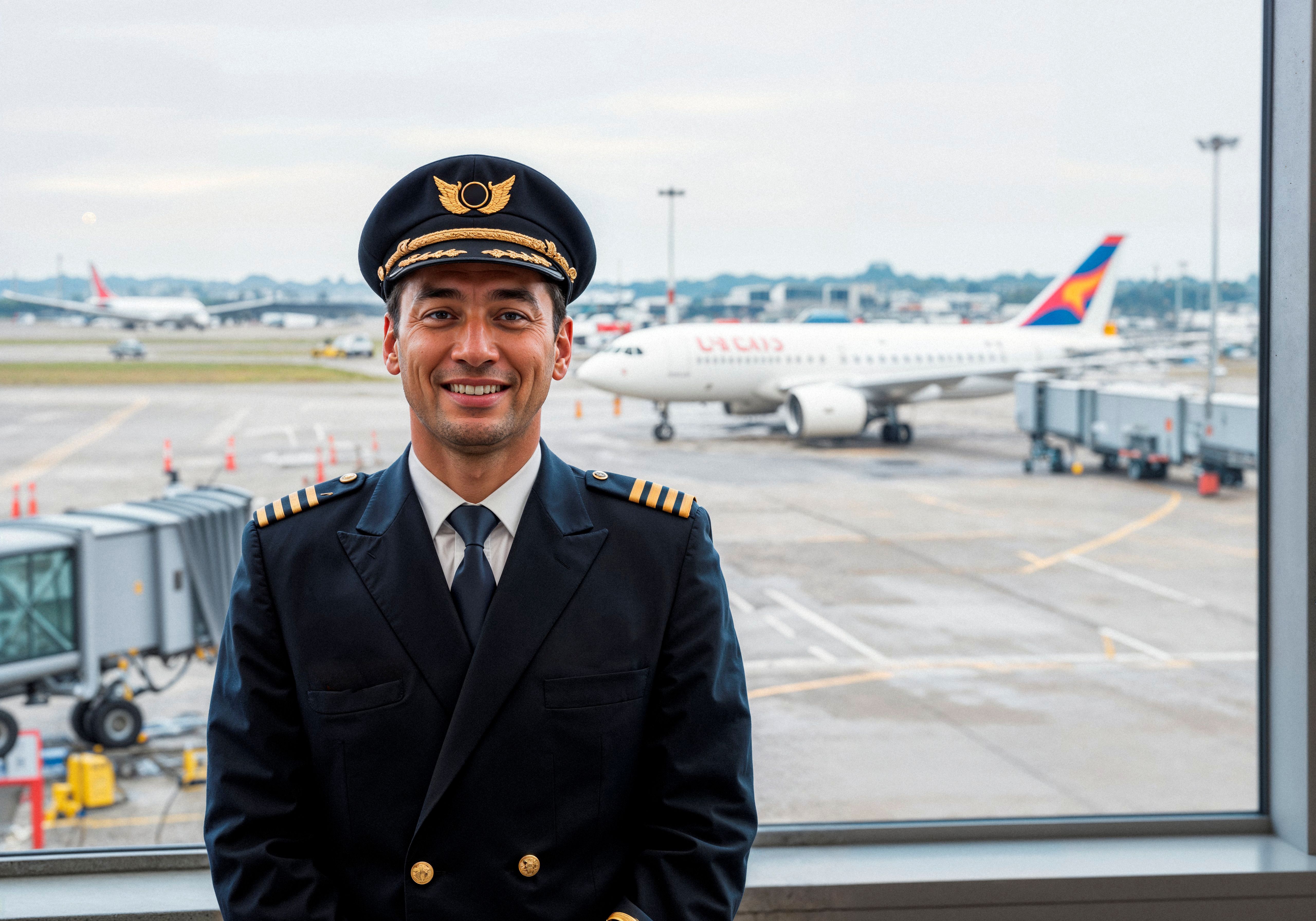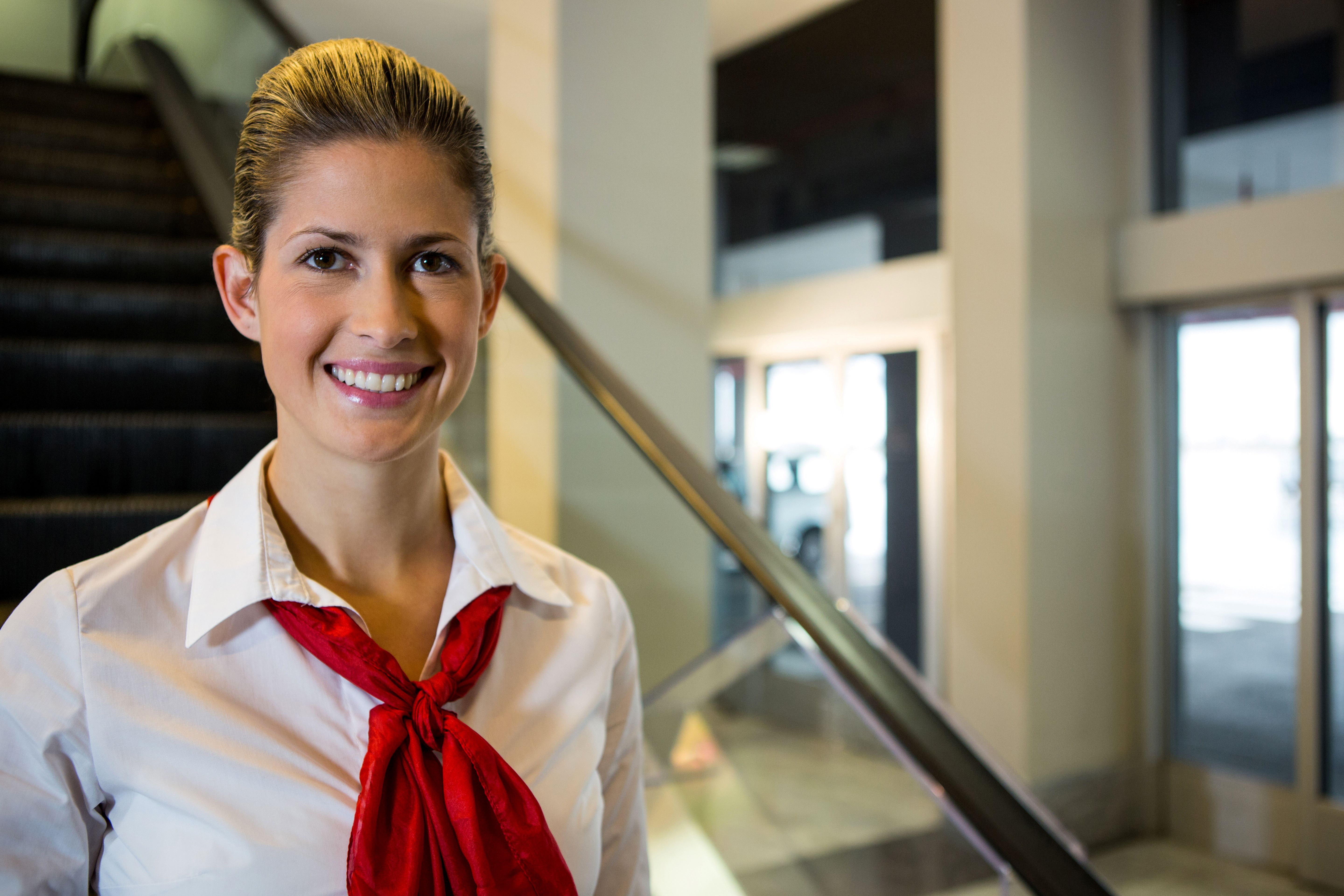Blog

Careers in Aviation: The Sky is the Limit!
July 2025
The aviation industry is one of the most dynamic, diverse and exciting sectors to work in and offers a wide range of career opportunities both in the skies and on the ground. From the well-known roles of pilots, cabin crew and engineers, to lesser-known occupations in safety, compliance and air transport management, this sector is expected to grow significantly in the near future, leading to a surge in demand for aviation professionals.
A career in aviation offers both high levels of responsibility and excellent earning potential. In this blog, we’ll explore the wide range of careers available, useful subjects to study, entry requirements, salaries, and where to find further information and apply for vacancies. Hold on tight and get ready for take-off as we explore careers in aviation!
An Introduction to Careers in Aviation
Aviation is a vast sector that encompasses commercial aviation, aerospace manufacturing, airport infrastructure, and air traffic control. The UK aviation industry contributes billions to the economy and supports hundreds of thousands of jobs.
Some of the main areas of employment include:
- Flight Operations (e.g., pilots, flight engineers)
- Ground Operations (e.g., airport ground staff, baggage handlers)
- Aircraft Maintenance (e.g., engineers, technicians)
- Air Traffic Management (e.g., air traffic controllers)
- Customer Service & Retail (e.g., cabin crew, check-in staff, retail staff)
- Airport Management and Logistics (e.g., Director of Operations, Compliance Manager, Airside Operations)
- Military Aviation (e.g., pilots, aircraft maintenance, ground operations)
One of the most high-profile and sought after roles is often that of the Airline Pilot but there are many other vital roles required to keep the aviation industry running smoothly.
Useful Subjects to Study
If you are in school and considering future options, STEM (Science, Technology, Engineering and Mathematics) subjects are useful to help prepare you for a career in aviation. For aspiring pilots or engineers, strong academic performance in the following subjects is particularly useful:
- Mathematics – essential for navigation, calculations, and technical problem-solving.
- Physics – important for understanding flight principals of motion and forces that enable aircraft to fly.
- English – strong communication skills are vital for all aviation careers, especially for understanding aviation terminology and procedures.
- Geography – useful for understanding global navigation and meteorology.
If you are interested in the business or operational side of aviation (e.g., airport management, administration or logistics), subjects such as Business Studies, Economics, and IT can also be beneficial.
Although a degree is not necessary to become a pilot, some airlines will prefer candidates to have a degree as this demonstrates their competitiveness and professionalism.
Entry Requirements and Training Options
Becoming a Pilot
To become a commercial pilot in the UK, you typically need to gain an Airline Transport Pilot Licence (ATPL) and a Class 1 Medical Certificate
There are two main training routes:
This is a full-time, structured course at an approved training organisation or with an airline. You do not need any prior flying experience, but you must pass aptitude tests and have good GCSEs (some airlines and schools also require A-Levels) especially in Maths and Physics. This course usually takes 18-24 months and costs between £70-120K. Several major airlines offer pilot training programmes, either through their own academies or by partnering with flight schools. These programmes provide a pathway for individuals to become pilots with a direct route to working for the respective airline.
- British Airways provides fully funded flight training for a select number of candidates on their Speedway Pilot Academy Cadet Programme
- Easyjet offer the opportunity to gain a Multi Pilot Licence
Find out more here: Easyjet -Become a Pilot. - RyanAir have launched a new Future Flyer Academy for individuals with little or no prior aviation experience.
- TUI offer the opportunity to gain a Multi Pilot Licence TUI Airline MPL Cadet Programme
- Virgin Atlantic offer the Future Flyer Programme
Pilot schools in the UK are some of the best flight schools in the world where the students receive excellent training with the best possible education. Some well-known flight schools include:
- Bristol Ground School
- CAE Oxford Aviation Academy
- Aeros Flight Training
- Wings Alliance
- Acron Aviation Academy
- Fantasy Wings -Airline Pilot and Aviation Development Programme
This route is more flexible and generally cheaper, but it does take longer than integrated training. Modular training is divided into separate stages, starting with Private Pilot Licence (PPL), through to Commercial Pilot Licence (CPL) and Multicrew Conversion (MCC). You can find out more about this route here.

Other Entry Routes
- University Degree with Flight Training: Some universities offer degrees with pilot studies.
- Brunel University offer a degree in Aerospace Engineering with Pilot studies lasting four or five years.
- University of Leeds offer a degree in Aeronautical and Aerospace Engineering
- RAF or Royal Navy: Military experience can also lead to commercial flying careers after service. Find out more: RAF Pilot Recruitment and Royal Navy Aviation Careers.
Other Aviation Careers
Aircraft Maintenance Engineer: ensure the safety of aircraft by performing aircraft maintenance
You can start as an apprentice or study a recognised Part 66 Aircraft maintenance course Employers include airlines, aircraft manufacturers, and maintenance firms. You may wish to explore the following apprenticeships:
Aircraft maintenance certifying engineer – Level 4
Aviation Maintenance Mechanic (Military) – Level 2
Survival Equipment Fitter – Level 3
Air Traffic Controller: give information and instructions to airline pilots to ensure safe take-off and landing.
Apply through National Air Traffic Services (NATS). You don’t need a degree, but you must pass aptitude tests and training. You can start as an apprentice: Level 5 Air Traffic Controller Apprenticeship.
Cabin Crew: ensure that airline passengers have a safe, comfortable and pleasant flight
Many UK airlines accept candidates with GCSEs and good customer service skills. Training is usually provided by the airline. Visit airline websites for more details and vacancies.
Airport Operations and Management: work with customers and suppliers to ensure safe, efficient and effective operation of the airfield and aircraft.

University degrees in aviation management or business-related fields are helpful.
- Cranfield University offer Air Transport Management MSc degree
- London Metropolitan University offer Airline, Airport and Aviation Management BSc degree
- University of West London offer Airline and Airport Management BSc degree
Civil Aviation International (CAA) offer a course: Aerodrome Operations Course.
Apprenticeships and graduate schemes are also available- it is worth taking a look at UK Airport websites:
- Apprenticeships at Stansted Airport
- Heathrow Airport Academy
- London Luton Careers
- London Gatwick Airport Apprenticeships
Potential Earnings
Salaries in aviation vary greatly depending on role, experience, and employer:
- Commercial Pilot (Captain): £90,000–£150,000+
- First Officer (Junior Pilot): £40,000–£70,000
- Air Traffic Controller: £30,000–£100,000 depending on experience
- Aircraft Maintenance Engineer: £25,000–£60,000
- Cabin Crew: £15,000–£30,000 (plus flight allowances and bonuses)
- Airport Manager: £30,000–£70,000+
Keep in mind that pilot salaries often start lower during training or early in your career but can increase significantly with seniority and experience.
Useful Links, Resources and Job Search Websites
Here are some reliable UK-based resources to explore aviation careers, training options, and current vacancies:
- British Airline Pilots’ Association (BALPA)
- Pilot Careers Live
- CAA -general pilot licence
- UCAS - Becoming a Pilot
- Springpod online work experience: Aviation & Aerospace work experience
- The Royal Aeronautical Society
- Aviation Job Search
- Indeed UK – Aviation Jobs
- GOV.UK Apprenticeships
- Prospects – Job Profiles
- British Airways Apprenticeships
- Virgin Atlantic Apprenticeships
- TUI Apprenticeships & Early Careers
- Aerospace Careers Programme
- TAG Aviation Careers
- STEM Careers in Aviation
- Fantasy Wings -Airline Pilot and Aviation Development Programme
Conclusion
A career in aviation offers diverse opportunities for those with passion and enthusiasm for flight, problem-solving, and global travel. While the training—especially for pilots—can be intensive and costly, the long-term career opportunities are vast and lucrative and there is currently a high demand for aviation professionals.
The sector offers everything from engineering and logistics to air traffic control, retail and hospitality, meaning there’s a role to suit almost any interest or skill set. You could even explore roles such as airport firefighting!
Start by researching different roles, speaking to people in the industry, and visiting career fairs or airshows to gain insight into the aviation world. The sky truly is the limit!
At FutureSmart Careers, we have fully qualified careers advisers ready to help. Our mission is to provide careers guidance, knowledge and resources so that young people can make confident and informed choices about their futures. If you would like careers guidance or support for students in your school, college or child, please get in touch at enquiries@futuresmartcareers.co.uk.
Images provided by Freepik



 0330 311 9509
0330 311 9509 






